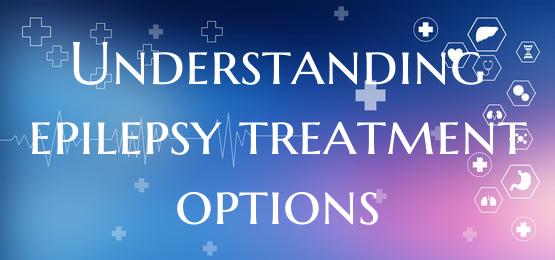
Understanding epilepsy treatment options
Epilepsy is a neurological disorder characterized by recurrent seizures, which can vary in severity and frequency. Managing epilepsy often involves a combination of medication, lifestyle modifications, and in some cases, surgery. Understanding the available treatment options is essential for individuals living with epilepsy and their caregivers. Here are some common treatment approaches for managing epilepsy:
1. Antiseizure Medications: The primary treatment for epilepsy is medication. Antiseizure medications, also known as anticonvulsants, work by stabilizing electrical activity in the brain to prevent seizures. There are many different types of antiseizure medications available, and the choice of medication depends on the type of epilepsy, the individual’s age, and other factors. It is important to work closely with a healthcare provider to find the right medication and dosage.
2. Ketogenic Diet: Some individuals with epilepsy, especially children, may benefit from a ketogenic diet. This high-fat, low-carbohydrate diet can help reduce seizure frequency in some cases. The diet is supervised by a healthcare provider or dietitian to ensure proper implementation and monitoring.
3. Vagus Nerve Stimulation (VNS): VNS is a treatment option for individuals who do not respond to medication or are not candidates for surgery. A small device is implanted under the skin, usually in the chest area, and delivers electrical pulses to the vagus nerve in the neck. These pulses can help reduce seizure activity.
4. Responsive Neurostimulation (RNS): RNS is a newer treatment option that involves the surgical placement of a device in the skull that can detect and respond to abnormal brain activity that precedes a seizure. The device delivers targeted electrical stimulation to stop the seizure from happening.
5. Surgery: In some cases, surgery may be recommended to help control seizures. Surgical options include removing the part of the brain where seizures originate or disconnecting the abnormal brain tissue from the rest of the brain. Surgery is usually considered when seizures are not well-controlled with medication and when the benefits outweigh the risks.
6. Lifestyle Modifications: It is important for individuals with epilepsy to adopt a healthy lifestyle that includes regular sleep patterns, stress management techniques, and avoiding triggers that may worsen seizures, such as alcohol or certain medications. Regular exercise and maintaining a balanced diet can also help in managing epilepsy.
7. Complementary Therapies: Some individuals with epilepsy may find relief from complementary therapies such as yoga, meditation, acupuncture, or biofeedback. While these therapies may not directly treat epilepsy, they can help reduce stress and improve overall well-being.
In conclusion, managing epilepsy involves a multidisciplinary approach that may include medication, lifestyle modifications, and other treatment options. It is important for individuals with epilepsy to work closely with a healthcare team to find the most effective treatment plan for their specific needs. By understanding the available treatment options and staying proactive in managing their condition, individuals with epilepsy can lead fulfilling lives with better seizure control and improved quality of life.